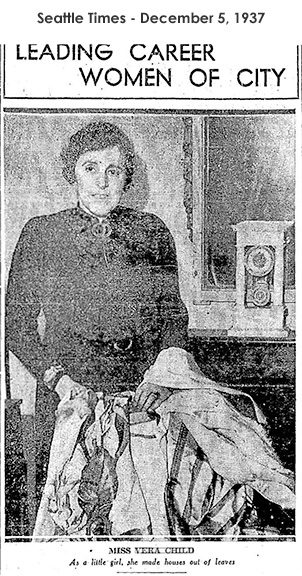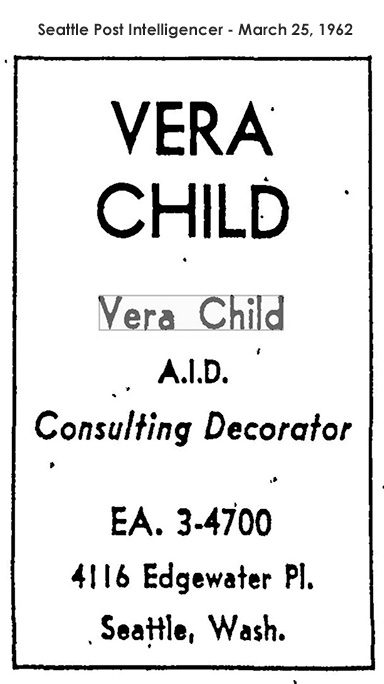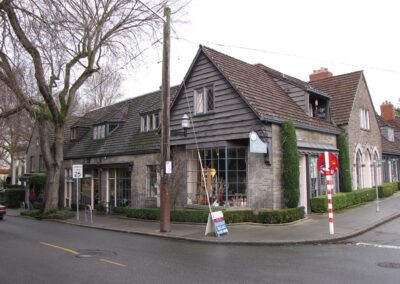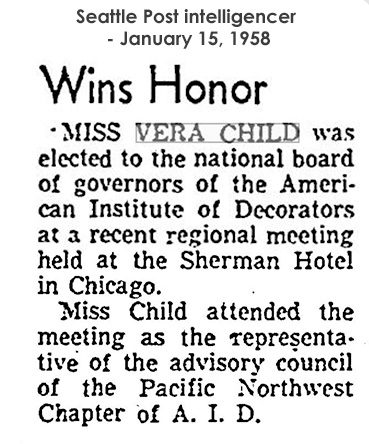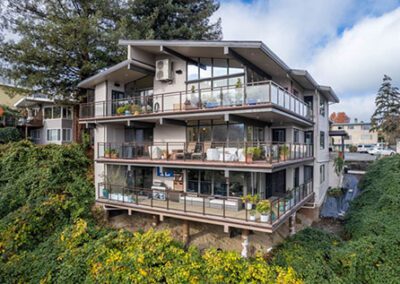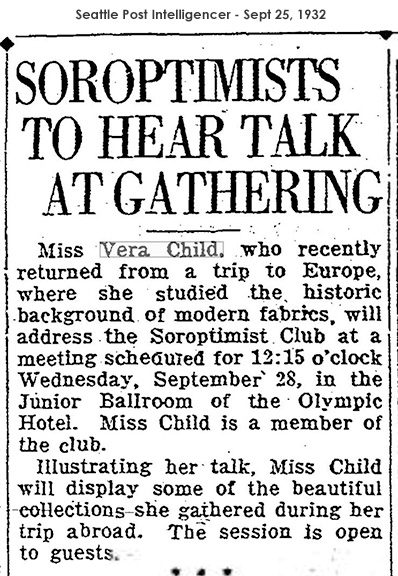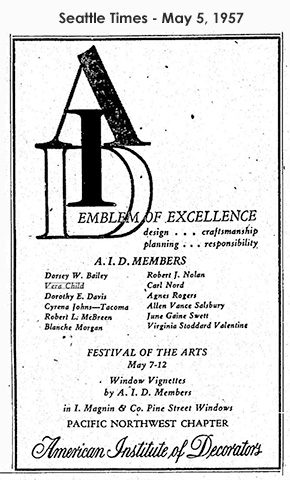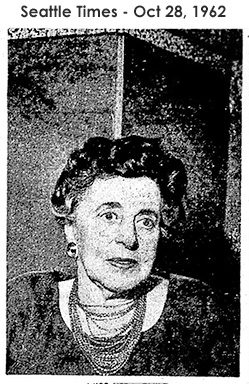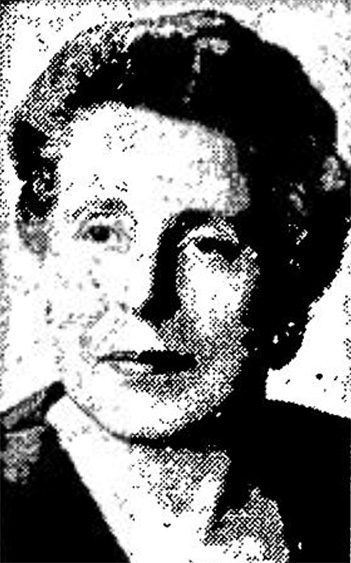
Child, Vera E.
(1885 – 1975)
Born January 19, 1885 in Glencoe, Minnesota, Vera Emily Child holds the distinction of being the first Washingtonian to become a member of the American Institute of Decorators (A.I.D.). An early 1920s graduate of the Parsons School of Fine and Applied Arts, Child initially became a member of the Northern California chapter in 1940, due to a fact that a chapter in Washington State had yet to be established. The A.I.D. was founded in 1931 and went through several name changes and mergers before the current organization (the American Society of Interior Designers) was formed in 1975. The Pacific Northwest chapter was not formed until 1952 with Child and 14 other colleagues.
While Vera had spent her early years in Minnesota, she moved to Spokane at the age of 15 with her dad, mom, and four sisters. At the time, her dad, Elisha A. Child, had retired from his farm implement business and political life as a Minnesota State Senator. By 1920, the family had moved to Sprague and Vera, who had by then graduated from secretarial school in Spokane, became her father’s personal secretary and bookkeeper.
For reasons unknown sometime in the early 1920s, Child (by then in her 30s) decided to go back to school and enrolled in the Parsons School of Fine and Applied Arts in New York City. Newspaper accounts note that by 1922 she was giving lectures on interior decoration to the Arts & Archaeology League of Washington D.C. Reportedly she worked in New York with famed decorator Elsie Cobb Wilson before coming to Seattle in 1925. She came to the city for a fresh start, and reportedly choose Seattle because she did not know anyone there.
That year she established the Interior Decoration Shop in the White-Henry-Stuart Building and began to make a name for herself. At the time she was the only female interior decorator in the city. Quickly she became a favorite and frequent lecturer to a variety of local women’s clubs. Among the topics she covered were “The House in Good Taste” – Women’s University Club, 1927; “Interior Decoration for Houses” – APEO – Rainier Chapter House, 1927; “Interior Decorations Covering Colonial Times,” Women’s University Club, 1929; “French Interiors” – Women’s University Club, 1931; “Historic Background of Modern Fabrics and Design,” 1932/33; UW Faculty Wives Club – 1933; Music & Arts Foundation; “Different Period of Home Decorating” – Friends of Cornish School, 1934; “Early American Furniture” Music & Arts Foundation, 1938; “Empire France” Seattle Art Museum, 1941; and “The Relation of Color” – Delta Gamma Mothers’ Club, 1942.
In 1929 she opened a new studio at 609 N Broadway with Alice E. Faris. Child kept a very limited amount of sample stock and instead displayed a variety of antiques, hangings, and furnishings to give her clients ideas. She was client focused and noted, “A decorator should grow tolerant, should attain a broad outlook. His client’s, not his own likes and dislikes should be considered.”
By 1931 she was one of thirty-seven advertised interior designers in Seattle and remained in business for another 30+ years. To garner ideas, Child traveled extensively across the globe and was reported to have visited Mexico, Japan, France, and other European countries at various times over the course of her career.
Active with the A.I.D., she was elected to the National Board of Governors in 1958 and became a Fellow of the A.I.D. in 1962. Outside of interior design she was heavily involved in the local chapter of the Soroptimist Club, serving as Vice President (1931) and then President (1933).
Throughout the years she mainly worked on homes (many in the Broadmoor neighborhood), sorority houses, and clubs. Other known projects include Seattle Officer’s Club (1943), The Carnation Plant in University Village, a home at 4116 E. Edgewater Place (1963), and Greenstreet Apartments on Magnolia Bluff (1965 with Architect Blaine McCool & Associates).
Child passed away in Seattle on March 17, 1975 at the age of 90.
– Michael C Houser
